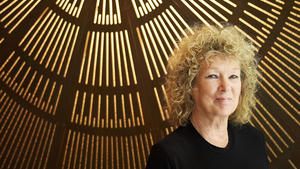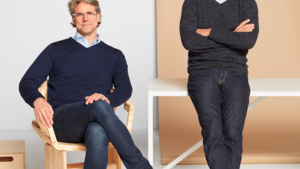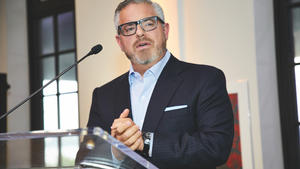If there’s one thing Rob Royer does religiously, it’s check his company’s NPS, or Net Promoter Score for those who didn’t major in marketing. It’s a numerical rating used to gauge customer satisfaction and loyalty. For a company that’s founded on the value of customer experience, like Royer’s custom furniture brand Interior Define, it’s a valuable piece of data.

Interior Define launched online in 2014, offering direct-to-consumer, customizable sofas at a middle-market price point. Veteran insight and early investment capital from Bonobos founder (and Royer’s brother-in-law) Andy Dunn helped the Chicago-based company gain early momentum among consumers and designers. Today, Interior Define, which has expanded its custom offerings to multiple product categories, is on track to triple its sales for the third year in a row. The growth has some industry players asking: Can this model work at the high end?
When Interior Define opened its first “Guideshop” in 2015, it doubled as an observational study in how consumers engage with the brand and its products.
“People would come in and be confused about what we stood for, what products we sold,” says Royer of the showroom, which was styled like a home and sold accessories from other brands. “It was distracting from our customization thesis.” The confusion led to Interior Define re-focusing the merchandising approach on the company’s core values and products. “We would never have known that was the wrong decision had we not witnessed it firsthand in the early days,” admits Royer in the latest Business of Home podcast.
The company has since opened Guideshops in New York, Austin, and Los Angeles, with locations in the works in San Francisco and Boston. Royer’s top priority for each? Creating an excellent customer experience.
Doing so begins with the people. And similar to its business model, Interior Define doesn’t stick to traditional methods when it comes to hiring. One of the company’s top client specialists, for instance, has a background in hospitality management. Building the corporate team for Interior Define isn’t based on resumé, Royer says, but individuals who share in the company’s values of empathy and an excellent customer experience.
“We can’t just say we want our customers to have this frictionless, elevated, better shopping experience; we have to reflect that with what we’re doing with our team, as well with people that really believe in that way of thinking,” says Royer. “I think we’ve effectively done that, but how we do that at scale is what the ongoing challenge will be.”
Listen to the full episode, which is sponsored by Fuigo, here:




























